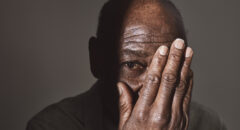
The hip-hop community lost more than music legends when Malik “Phife Dawg” Taylor and DJ Big Kap passed away. We lost voices, leaders, and reminders of how diabetes continues to take a toll on Black men. Phife, known as the “Five Foot Assassin” from the iconic group A Tribe Called Quest, openly battled diabetes for years. His passing in 2016 shook not only fans but also raised awareness about the disease that disproportionately impacts Black men.
But these tragedies aren’t just stories about celebrities—they’re wake-up calls. They’re reflections of what’s happening in barbershops, churches, and homes across the country.
The Numbers Don’t Lie
Black Americans are 60 percent more likely to be diagnosed with diabetes than white Americans, according to the U.S. Department of Health and Human Services. And for Black men, the risk is often worsened by late diagnoses, fewer medical visits, and chronic stress. It’s a dangerous combination—and it’s costing us dearly.
The Centers for Disease Control and Prevention (CDC) also notes that nearly one in three adults has prediabetes, and most don’t even know it. This is why prevention, education, and empowerment must start now.
RELATED: 4 Ways To Manage Diabetes On A Budget
Why Black Men Are Hit Harder
This isn’t just about genetics. A mix of historical, cultural, and socioeconomic factors contributes to the higher risk of diabetes among Black men:
-
Medical mistrust: From Tuskegee to present-day disparities in healthcare, many Black men remain understandably skeptical of medical institutions.
-
Stigma around illness: Too often, sickness is seen as a weakness. Many brothers avoid talking about health, or simply don’t go to the doctor until symptoms are severe.
-
Access and affordability: Not everyone has easy access to a healthcare provider or can afford regular screenings or healthy food.
Certified Diabetes Educator Dacia Bryant says that healthcare must meet Black men where they are. “It’s a two-way street,” she explains. “Black men have to be ready to receive the information, and we in the professional community must be competent in cultural beliefs, food insecurity, and financial realities.”
5 Actions Every Black Man Can Take Right Now
1. Get Screened for Diabetes—Don’t Wait
You can’t fight what you don’t know. Early detection can be the difference between managing diabetes and living with complications like kidney failure, blindness, or amputations.
-
Ask your doctor for an A1C test to measure blood sugar levels over time.
-
Take the ADA’s free Diabetes Risk Test—a 60-second questionnaire that can tell you your risk level.
-
Use free or low-cost community screenings often held at churches, barbershops, and health fairs.

2. Talk About Your Family Health History
Diabetes tends to run in families, especially in communities where food traditions and habits are passed down through generations.
-
Have real conversations with your parents, aunts, and uncles about their health history.
-
Share your medical concerns with your siblings or children—it helps everyone.
-
If someone in your family has diabetes, ask how they manage it. Learn from their experience.
3. Move Your Body—Consistency Over Intensity
You don’t need to run marathons to fight diabetes. Just 150 minutes of moderate exercise per week—like brisk walking or dancing—can reduce your risk dramatically.
-
Try walking for 30 minutes five times a week.
-
Turn on your favorite playlist and move—whether it’s stepping, dancing, or stretching.
-
Play basketball, ride a bike, or even join a local rec league—make it fun, not a chore.
Fitness doesn’t have to be perfect—it just has to be consistent. Remember: it’s about progress, not perfection.
RELATED: Quiz: Am I Managing My Diabetes Well?

4. Eat Smarter Without Breaking the Bank
Senior Health Educator Natasha Coleman, who lost over 200 pounds naturally, says the key to health isn’t in strict dieting—it’s in smarter choices and small wins.
Her top tips:
-
Cut sugary drinks. Soda, sweet tea, and even some sports drinks are loaded with sugar.
-
Eat fresh when you can. Shop local produce markets or frozen fruits/vegetables when fresh isn’t available.
-
Ditch the deep fryer. Try grilling, baking, or air frying instead.
-
Watch your carbs and portions. You don’t have to give up rice or pasta, but consider brown rice or whole-grain options and keep portions in check.
Eating healthy doesn’t mean going vegan overnight. Start small. Swap out fries for a side salad. Cook at home once more per week. Over time, these choices become habits, and habits become a lifestyle.
5. Break the Silence and the Stigma
Health doesn’t make you weak. Not talking about it does.
For centuries, Black bodies have been exploited in medicine, from slavery to forced sterilizations to ongoing racial bias in treatment. But silence around health issues has only made the situation worse.
Ta-Nehisi Coates wrote in Between the World and Me, “In America, it is traditional to destroy the black body—it is heritage.” But we can rewrite the narrative. Protecting your body is power. Speaking up is a strength.
Start the conversation:
-
At your next barbershop visit, talk about wellness.
-
Encourage your boys to get checkups.
-
Be open with your kids about your health journey.
You never know who you might inspire.
Resources That Can Help
-
Local community health centers and churches
-
BlackDoctor.org for culturally relevant health advice
-
Talk to a Certified Diabetes Educator in your area
Your health is your legacy. Let’s protect it—together.








